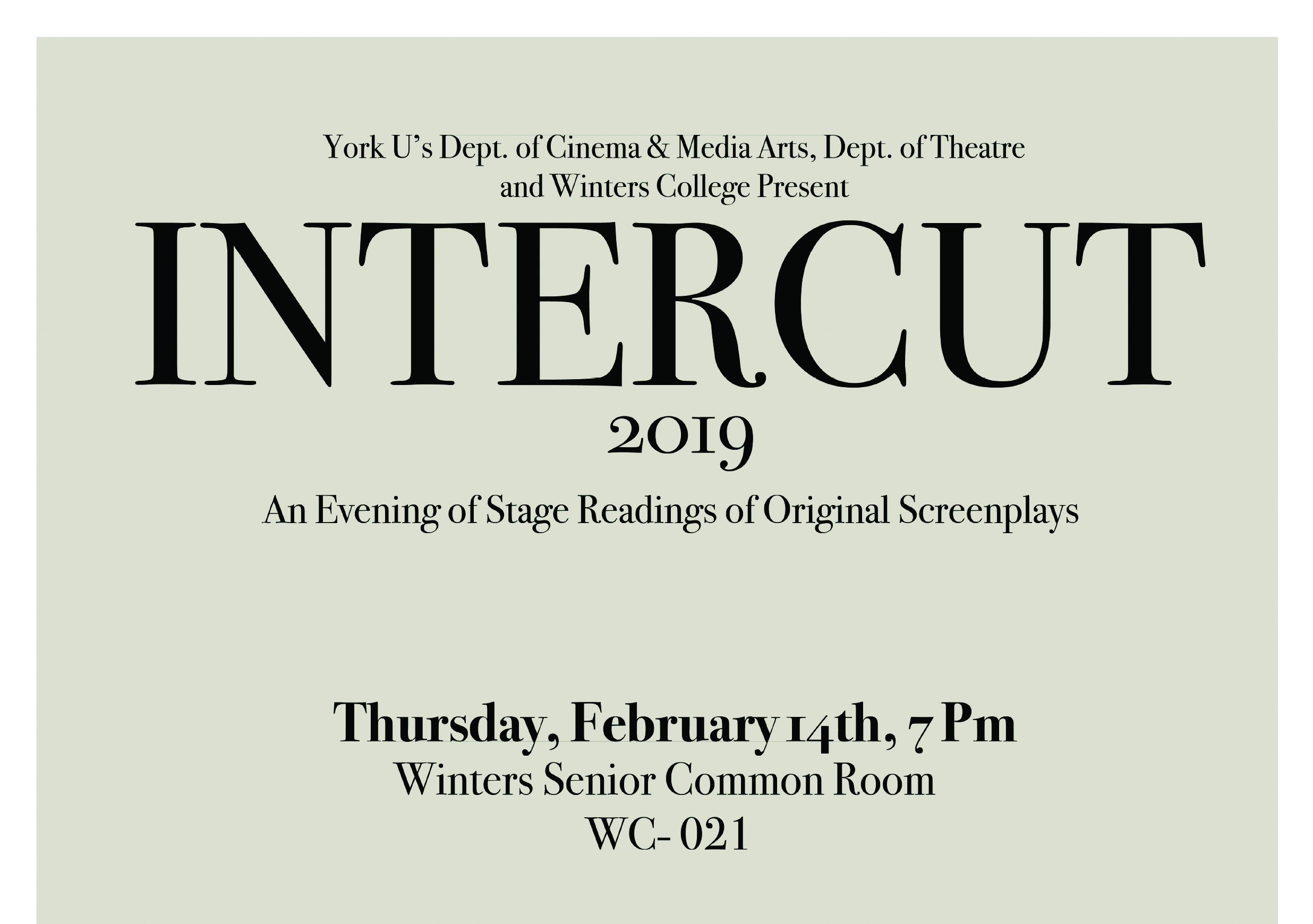Miriam El Abbassi | Arts Editor
Featured Image: Intercut is an annual collaborative event between York University’s Cinema & Media Arts and Theatre departments. | Bhabna Banerjee
Intercut is an annual collaborative event between York’s Cinema & Media Arts and Theatre departments. A selection of short scripts written by students in the screenwriting program are performed by students in the acting program, followed by a Q&A session with the writers and actors.
This year it is taking place tomorrow, February 14, at 7 p.m. in the Winters Senior Common Room (Room 021). Admission to the event is free, and it’s open to the public.
As a writer, there are many benefits to participating in an event such as this, as Laura Gladwell, Intercut’s organizer this year, explains: “If you’re someone who writes screenplays or scripts of any kind, getting to hear your work read aloud is invaluable. Dialogue will invariably sound different when spoken by other people than it does in your own head, and hearing another person’s interpretation of the lines you’ve written can really help illuminate what’s working and which spots in the script you might need to re-work.”
Another benefit to having a script read aloud is being able to see if/how easily ambiguous imagery can be interpreted (does the audience understand where the characters are situated, what they’re doing, what’s going on around them, etc.?). These are elements that may seem obvious to the writer, but an audience approaching the material for the first time may not pick up on them so easily. The Q&A session that follows afterwards will be an engaging dialogue in which the writers can ask questions to the audience, as well as field questions and receive specific feedback from the actors, writers and other faculty.
Sarini Kumarasinghe, a third year screenwriting student, will be participating in Intercut this year, and hopes to gain a different perspective on the work she has submitted: “Hearing my script read aloud offers me a completely different view of it than I get when I’m writing. Sometimes something sounds natural in my head and then I hear it read aloud and it sounds ridiculous, so that third-person view is crucial.”
Kumarasinghe also describes the unique quality actors can bring to a script, such as the various subtleties they integrate into their performance. Sometimes, they can bring about a new meaning to the work that wasn’t apparent before.
Kumarasinghe’s script follows 20-year-old Malik, who, after a night of drinking with his best friend, must come to terms with an unexpected development that will undoubtedly alter both their relationship, and Malik’s understanding of himself.
Gladwell also describes how working collaboratively with the actors in previous years has been an enjoyable experience: “The actors manage to pull off a pretty polished performance considering how little rehearsal is involved in the process, and I get the sense that this is a fun challenge for them. Last year, the actors also contributed a lot to the post-performance Q&A, and it was helpful to get their personal takes on the scenes and characters.
“Overall, I think this event is a really great opportunity for students in both the Film and Theatre programs, and I see a lot of room for much more cross-departmental collaboration at AMPD,” Gladwell adds.


